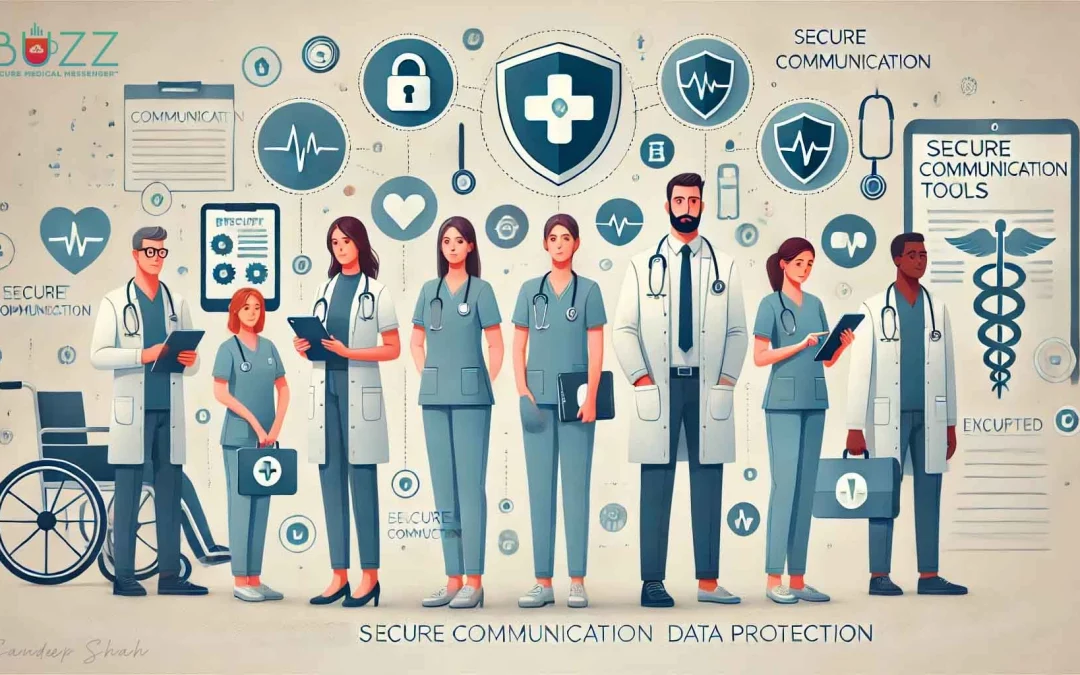Quick Overview: Why Secure Communication Matters in Home Care
Secure communication platforms are critical for home care agencies as they balance patient safety, HIPAA compliance, and efficient care delivery. These tools go beyond data protection to streamline workflows, strengthen collaboration, and improve patient outcomes.
- Protect sensitive patient data from breaches and fraud
Ensure HIPAA compliance for in-home care teams - Improve patient care with AI, telehealth, and real-time messaging
- Enable document sharing and collaboration across the care team
A secure communication platform helps home care agencies deliver safer, faster, and more reliable care.
The home healthcare industry is one of the fastest-growing industries in the US, with a projected annual growth rate of nearly 8% from 2024 to 2030. In 2020, the market for home care was valued at $100.4 billion. By 2027, the market is expected to reach $225.6 billion, with a compound annual growth rate of 11%. People undoubtedly prefer the conveniences of digital health services like telehealth and telemedicine, and home health agencies take things a step further with in-home care.
Unfortunately, the healthcare industry remains one of the most vulnerable to cyberattacks and data breaches. These incidents often occur due to human error, but in 2023, third-party vulnerabilities accounted for 34.9% of all incidents. The risk can be even greater for home health agencies without secure communication. Although data security is a key concern for health providers, secure platforms offer several other benefits. Here, we’ll explore the benefits of implementing secure communication within your home healthcare solutions.
8 Reasons Your Home Health and Hospice Organizations Need Secure Communication
When most of your staff are in the field, coordinating care delivery, managing third-party providers, tracking patient progress, and dispatching resources in real time can be challenging. Technology has always played a crucial role in enhancing patient care and organizational efficiency in various healthcare settings, including home care agencies. However, a balance must be struck between utilizing technology and complying with HIPAA regulations to safeguard protected health information (PHI). Some of the major benefits of using secure messaging solutions within home healthcare agencies are as follows.
1. Reduced Risk of Common Data Breaches and Fraud
According to the HIPAA Journal, network servers were the most common location of breached healthcare data in 2023, and several breaches involved sensitive patient information and protected health info stored in email accounts. While hospitals and facilities can help prevent these types of breaches by utilizing specific on-site security features, home health agencies may find it more difficult. Still, home agencies are legally and ethically responsible for protecting sensitive data.
One solution is to adhere to a mobile device management solution that ensures each team member uses secure devices to access and transmit patient data. On these devices, it’s essential to employ secure communication channels that meet compliance requirements to help reduce the risk of cybersecurity threats. Encryption and protocols such as transport layer security (TLS) or secure sockets layer (SSL) can further improve security measures.
2. Guaranteed HIPAA Compliance
The Health Insurance Portability and Accountability Act (HIPAA) was created to address healthcare information security and privacy concerns. It ensures that patient information is confidential, and the appropriate teams can access health records. Failure to meet HIPAA compliance is considered unethical and can result in serious fines, a complete lack of patient trust, and expensive data breaches. HIPAA violations may also lead to lost medical licenses or organizational shutdowns.
Traditionally, healthcare organizations have on-site safeguards for health data, like private networks. This becomes a bit more complicated for off-site healthcare teams seeing patients and their families in their homes. In the past, to stay HIPAA compliant, health agencies may have had limited access to patient records while in the field or the inability to consult with their colleagues. Secure healthcare communication platforms like Buzz allow for strong, effective, and secure communication.
3. Streamlined Patient Care with AI Insights
Depending on the technology you choose for care coordination, healthcare providers can leverage the power of AI to take proactive measures with patient care. With integrated AI that meets HIPAA compliance in home care settings, doctors, nurses, or specialists can create appeal letters, outline care plans, summarize notes, and more via automated technology. This can improve the operational efficiency of home health specialists without sacrificing quality of care.
Buzz by Skyscape integrates an AI clinical knowledge base, revolutionizing how healthcare providers access and utilize information. With the power of artificial intelligence, the platform provides faster and more accurate clinical insights. This not only aids healthcare professionals in making informed decisions but also contributes to reducing hospitalization rates by proactively addressing patient needs.
4. Secure Multimedia Messaging with Integrated Telehealth
Low-security communication channels like SMS or traditional emails should never be used to discuss or share protected health information. Doing so significantly increases the risk of a data breach or hack and fails to meet industry regulatory standards.
Secure messaging is essential to ensure HIPAA compliance, protecting sensitive health information transmitted and accessed within home care workflows. This allows home care workers to send multimedia messages to clinicians, specialists, and other departments within a closed network protected by end-to-end encryption.
The ability to send messages in real-time can help improve communication between care team members, positively affecting patient outcomes. When integrated with telehealth, secure multimedia messaging can also improve patient engagement, which can help them achieve a better overall plan of care.
5. More Efficient Patient Follow-Ups
Telehealth and telemedicine have been increasingly popular since the pandemic. 55% of people believe they receive better care in teleconsultations, and only 5% of virtual appointments result in the need for in-person appointments.
A strong communication platform enables providers in the field to coordinate home visits better, eliminate phone tag, reduce errors, and minimize delays in patient care. This can result in more efficient new patient admission and follow-up care.
6. Greater Collaboration Within the Care Team
HIPAA-compliant platforms allow the entire medical care team to document, share, and review electronic health records, enhancing overall patient care and treatment. Since clinical communication between healthcare professionals is essential for quality of care, secure platforms have several benefits that translate to better patient care.
Essentially, the ability to translate and share data leads to greater communication and collaboration among staff, patients, physicians, and family members. The stronger the collaboration, the more likely home health agencies can improve patient outcomes, reduce hospitalizations, and increase patient census.
For optimal results, communication tools should be provided to all agents within the helping agencies. This allows home health agencies to deliver efficient care coordination. Flexible groups can also allow team members (providers, field staff) to manage real-time patient-centric communication with the ability to add members with access to historical messages to manage efficient care.
7. The Ability to Send and Receive Documents in Real-Time
Many healthcare professionals need their patients to sign documents, give consent, or provide insurance information. Internal teams must also collaborate on crucial documents to enhance healthcare delivery. With a secure communication platform, achieving this is simple. Document collaboration with signature capabilities such as DocuSign is beneficial for various healthcare aspects and can enhance overall efficiency and quality of care.
Secure platforms also allow for fax service and document-sharing capabilities without printing anything. This allows providers to seamlessly exchange important documents such as medical records, prescriptions, etc. The ability to share this type of information in real time can have cascading benefits on patient care, outcomes, and satisfaction.
8. Simplify Communication with Everything in One Place
The platform type you choose matters, as some allow for more integration than others. Buzz, a HIPAA-secure communication platform and app for care team collaboration and patient communication, supports commonly used modalities like video conferencing, private calls, texts, dictation, audio/video, image sharing, and report sharing. You can enjoy simple, seamless integration between Buzz and other common software platforms. Just ensure that any additional platforms used are also HIPAA-compliant to continue sharing data without risking PHI.
Buzz is a HIPAA-compliant clinical collaboration and mobile messaging platform that enables field staff and nurses to securely deliver and coordinate care from the office, a patient’s home, or while in transit. Our secure communication platform helps home health and hospice organizations work smarter and deliver better care with mobile operational functionality.
With easy access to the entire care delivery team and other groups by smartphone or desktop, home health and hospice staff are equipped for any clinical challenge. Seamlessly connect with referring agencies, coordinate home visits, update family members, and reach physicians for treatment questions and prescription requests. By offering telehealth capabilities, secure messaging, an AI clinical knowledge base, and streamlined document management, Buzz by Skyscape empowers healthcare professionals to deliver high-quality care with greater convenience and effectiveness. Visit our features page to learn more about Buzz by Skyscape today.

